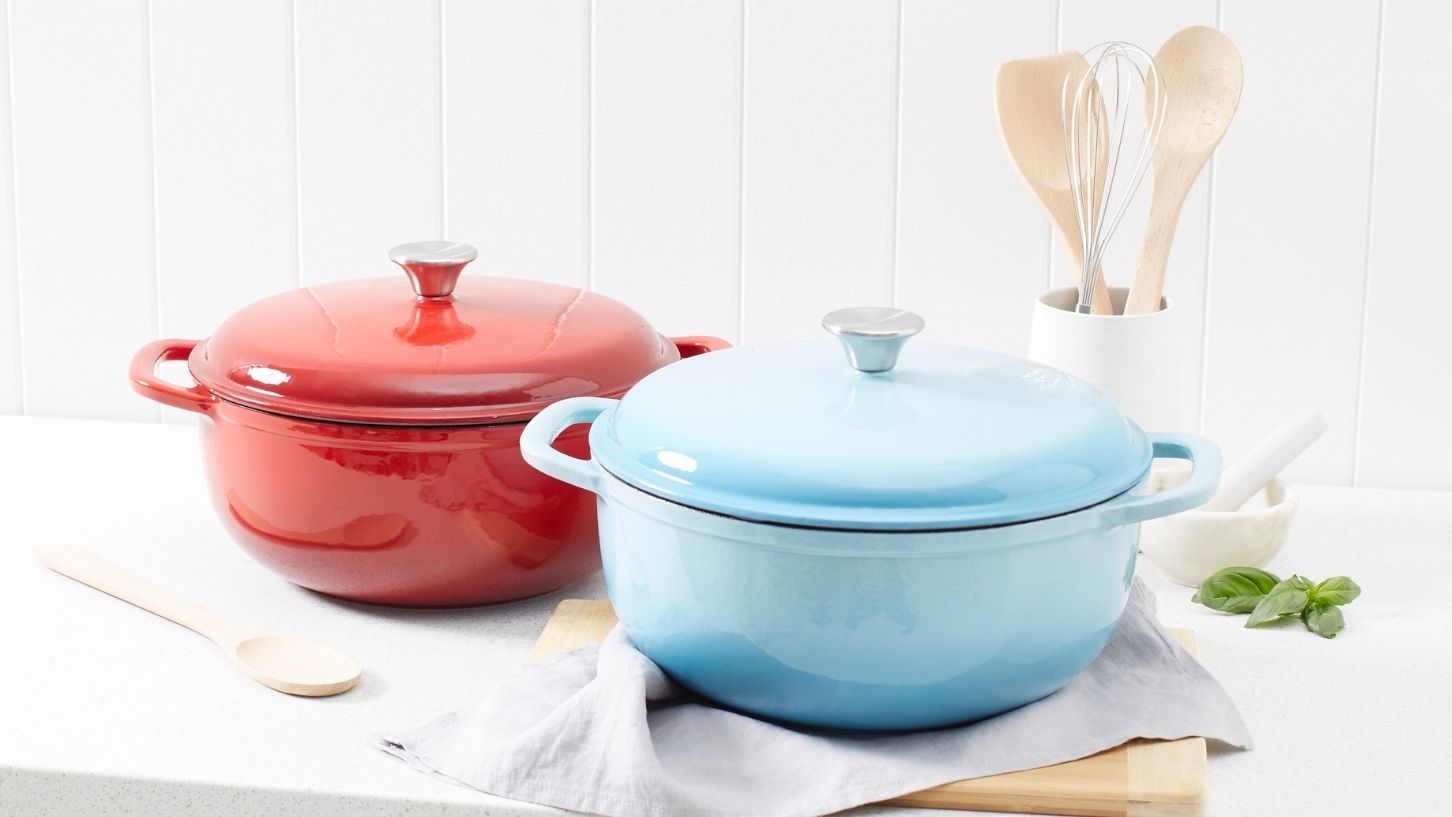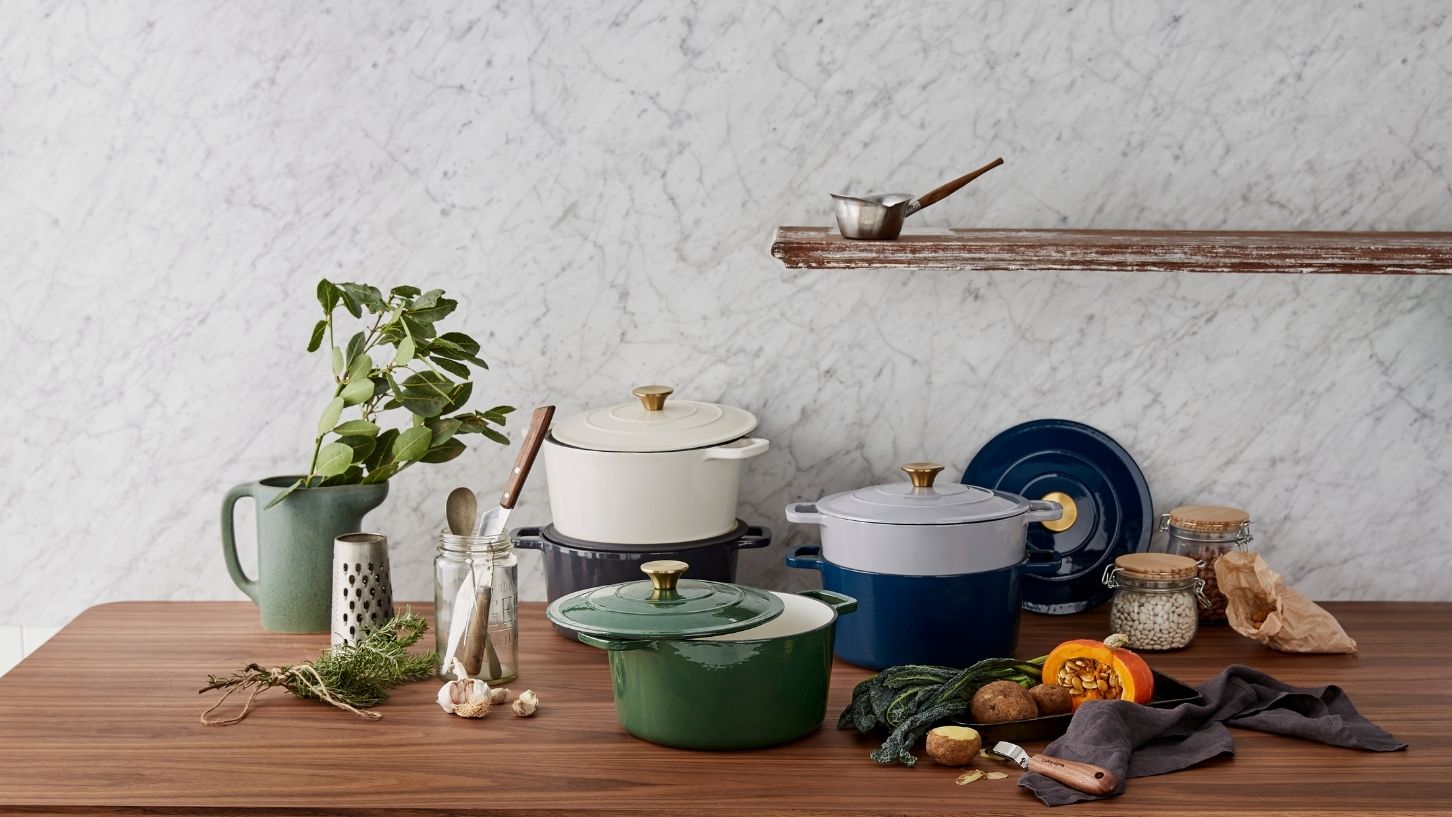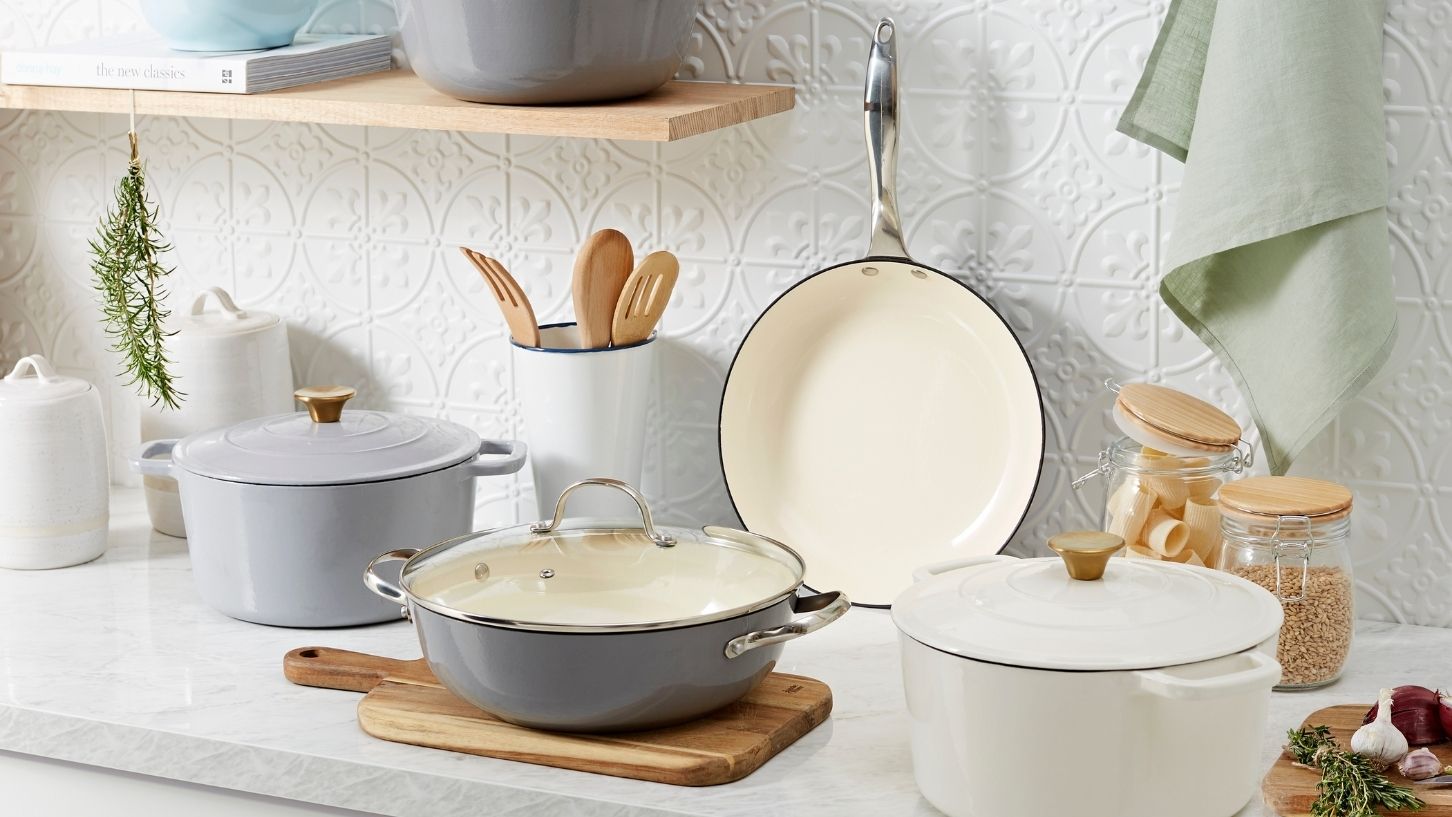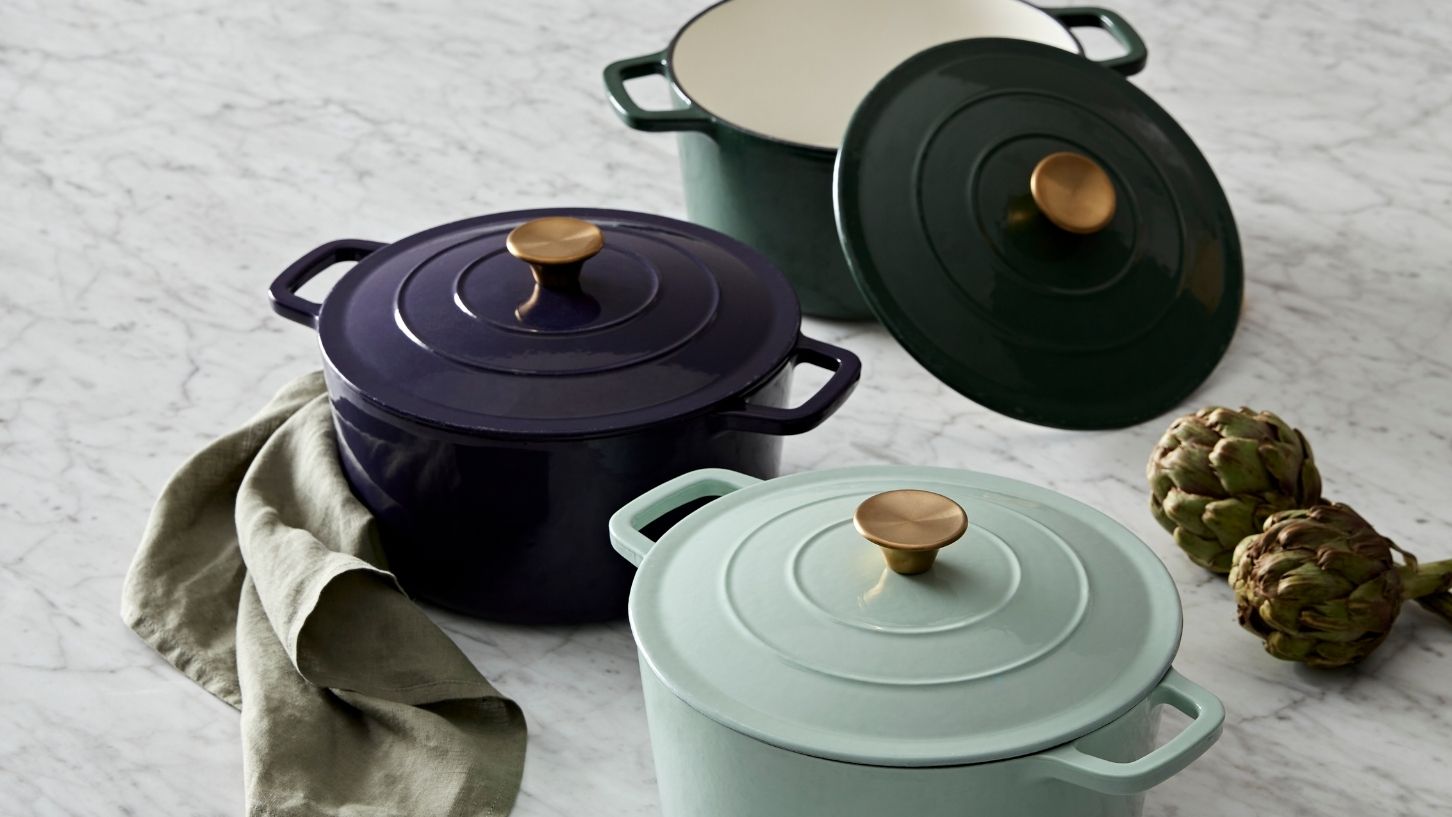| Your browser is not supported. | ||
|
Please browse our site using any of the following options:
| ||
Cleaning Cast Iron: How to care for your cast iron cookware

Cookware made from cast iron is some of the best cookware you can have in your kitchen. It is extremely durable, will last for a very long time and has an impressive thermal density when cooking. However, when cast iron cookware is left not taken care of, it can quickly turn into a nightmare.
If you have noticed marks and grime starting to form on your neglected cookware and are scratching your head over how to clean a cast iron pan, then we have created an in-depth guide to explain everything you need to know. But first, here are some answers to some of the most commonly asked questions when it comes to cast iron cookware.
Most Common Cast Iron Cookware Questions

What's the best thing to clean cast iron with?
Although you don't want to use harsh cleaning products like steel scourers, you don't have to be too gentle when scrubbing cast iron. You can find specific cast iron cleaning brushes, but if you don't have one, a brush with bristles will do just fine. You can also use a little bit of mild dish soap to clean your cast iron pans.
Can you put cast iron in the dishwasher?
The simple answer is no, you cannot put your cast iron pans in the dishwasher, no matter how tempting it may be. This is because the strength of dishwashing detergents will strip away the non-stick surface of the cast iron and leave your beautiful cast iron cookware vulnerable to rust.
Is it ok to boil water in cast iron?
This is a tricky one to answer. It is ok to boil water in your cast iron cookware - but only occasionally if you absolutely need to. Otherwise, it is not ok to boil water. This is because if you constantly boil water in it, like for cooking pasta noodles, it will cause the cast iron to release its seasoning and taint the water.
Can you use baking soda to clean cast iron?
Yes, you can use baking soda to clean cast iron. In fact, baking soda is a great alternative if you don't have any specific cast iron cleaning products on hand. Just add a little bit of baking soda in your cast iron pan, add in some water and you are ready to start cleaning.
What should you not cook in a cast iron pan?
Even though cast iron cookware has a non-stick coating, it's best to avoid cooking sticky foods, with the main culprit being eggs. Foods that are smelly are best to avoid, such as stinky cheese, as they tend to leave their aromatic scent in the pan if not properly cleaned each time. Delicate foods, such as trout, are also not the best to cook in cast iron as the heat can get quite intense and cause them to stick to the surface.
Why is my cast iron black when I wipe?
There could be many reasons for this, and all are a result of the cast iron not being properly cleaned. Burnt food particles can appear if the seasoning has been stripped off and not applied back on before cooking. Another main reason can be carbon deposits, which is the residue left over from the overheating of oils and fats when cooking.
What You Will Need
Before you begin rolling up your sleeves and start scrubbing, here is a list of what you will need:
- A cast iron pan, skillet or cast iron cookware you are needing to clean.
- Some paper towels or a clean and dry tea towel.
- A clean sponge or a brush with bristles.
- Cleaning gloves (optional).
- Kosher salt or mild dish soap - just a little bit.
- If there is a lot of gunk built up, then a scourer will help break it down.
How To Clean A Cast Iron Pan, Skillet & Pot

- Fill your sink up with hot water. If you're using mild dish soap, then squirt a couple of drops in the water and mix it around. If using salt, add some into the pan with a little bit of the water.
- Now put on your gloves, grab your brush or sponge (or scourer for lots of built-up gunk) and start cleaning. Scrub in small circular motions all over the surface of the cast iron pan to make sure there are no stains or marks that are left behind.
- Dunk the pan in the sink water and then rinse with clean hot water until you can't see anything left behind on the surface.
- Rather than letting it dry on a dish rack, use a clean tea towel or paper towel to dry the cookware. Remember: if any water is left behind then it can wreak havoc on cast iron cookware and result in rust, so make sure it is fully dried.
How often should you clean cast iron cookware?
If you properly clean your cast iron cookware, then you shouldn't have to do a thorough clean due to built-up grime, food and muck.
Seasoning A Cast Iron Pan
- Before you begin seasoning your cast iron cookware, make sure it has been properly cleaned and dried by following the above steps first. Once clean and dry, preheat your oven to 230°C.
- Grab a bottle of cooking oil, such as corn, canola or vegetable oil, and carefully pour some onto a paper towel. Now begin wiping over the entire cast iron skillet, including the outside and handle.
- Place your cast iron pan, skillet or pot into the oven and let it bake for about 30 minutes, as the heat will help the oil effectively set.
- Making sure to use an oven glove or tea towel, take out the pan from the oven. Let it cool for a little bit and then give it another coating and place it in the oven for another 30 minutes.
- Repeat this two more times to make sure that the cast iron has fully developed a good layer of seasoning. You should be looking for a shiny, semi-gloss finish.
How often should you season cast iron cookware?
You should typically season your cast iron cookware about two to three times a year. Although for good measure, it's a good idea to oil your cast iron skillets, pans and pots after each use. This will also help in protecting the pan from rust.
Common Cast Iron Cookware Myths

If you have searched online for how to clean cast iron, you will have no doubt come across many myths and claims regarding how to use and clean cast iron cookware. To help eliminate any confusion you may have, here are the most myths about cast iron:
You shouldn't use cast iron to cook acidic foods
Many claim that cooking acidic food in cast iron cookware will result in the metal reacting with the acids, making it seep into your food when used again for cooking. The reality is, well, a little tricky. It is fine to use a well-seasoned pan to cook acidic foods such as tomatoes and deglazing the pan with wine. However, you should avoid simmering acidic sauces like tomato sauce as it will have much longer contact with metal during cooking.
Cast iron isn't that durable
Another common theory is that it's really hard to look after cast iron cookware and that it isn't that durable. Apart from being able to withstand a drop to the floor, cast iron is strong and durable. To give you an idea of just how durable cast iron is, the gardens of the Chateau de Versailles in France still uses cast iron pipes that were laid down all the way back in 1672! As long as you are properly cleaning and seasoning your cast iron cookware, it will last for a very long time.
Metal utensils will ruin the cast iron
As we just mentioned, cast iron is incredibly durable. This means that you don't have to throw out all your metal cooking utensils. Using a metal spatula or tongs when cooking with cast iron is perfectly fine, just make sure you are correctly cleaning it and seasoning accordingly. But if you are still paranoid about scratching the cast iron, you can always use wooden or silicone kitchen utensils instead.
Never wash cast iron cookware with soap
This is probably the most frequent myth when it comes to cooking with cast iron, and as we mentioned at the beginning, it's a little tricky. The myth is that cleaning your cast iron pots and pans with soap will erode the oil from seasoning. The reality is that seasoning is actually a layer of polymerised oil, not oil. This means that dish detergent can't easily affect it when cleaning - however, it can if you let the cast iron soak in it.
When it comes to how to clean cast iron pans properly and to ensure they are correctly seasoned, follow the above steps and enjoy your cast iron cookware for many years to come. If you have been on the fence about upgrading the cookware in your kitchen, then explore our entire cast iron cookware range today. If you're looking for some delicious recipes to try, then check out Poh's Top 4 Cast Iron Pot Recipes.